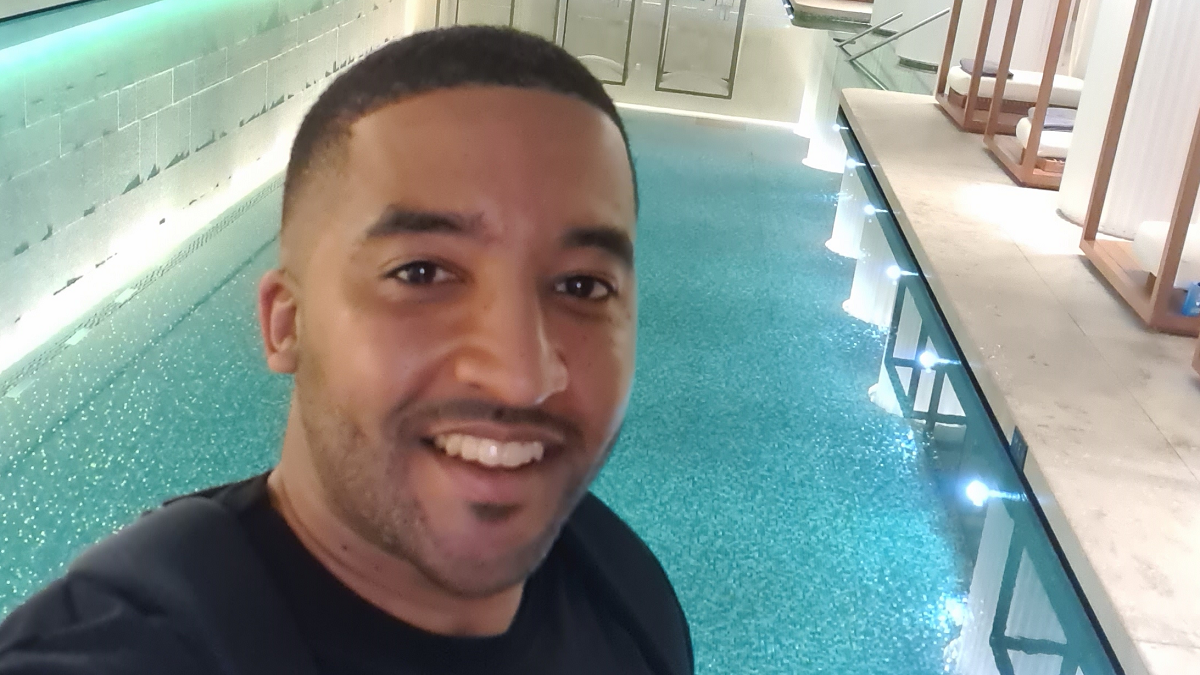
Harley Hicks urges people to complete England Swims survey and make change
20 June 2022Swimming coach, teacher and tutor Harley Hicks has urged people to ‘have their say’ and complete the England Swims survey to help shape the future of aquatics.
Harley has been involved in aquatics for more than 10 years through a variety of roles – starting out as a lifeguard and progressing through to becoming a qualified Swim England tutor.
He is passionate about helping to improve diversity across the sector and has asked people not to miss out on the opportunity to ‘have an impact on how swimming is functioned and operated across the country’.
The results of the England Swims survey will feed into Swim England’s next 10-year strategy, which will be its most ambitious yet in terms of increasing diversity in the water.
Harley said: “I really would urge people to get involved in the survey. It’s the biggest survey of its kind.
“The results will have an impact on how swimming is functioned and operated across the country over the next 10 years – so it’s an important survey.
“It’s going to be something that is going to have an impact on strategy, which could then have an impact on legislation at some point in the future.
“So I would urge people to take part and be honest, be really honest and let everybody know exactly what’s going on, on the ground.”
Important that people have their say
Drawing on his experiences on poolside throughout his career to date, Harley discussed some of the barriers that ethnically diverse communities may face when it comes to aquatics.
He continued: “I’ve been in swimming now for more than 10 years and I’ve seen the landscape change during that time.
“I do think there are a lot of underlying issues people have which restricts them from either learning to swim or participating in swimming.
“Whether it’s down to funding expense, whether it’s down to not feeling comfortable in the environment, whether it’s down to not having the right kind of equipment or clothing.
“And all of the above mentions I can relate to, or have seen examples of, over the last 10 years as to why people would be limited or not want to come into the swimming environment or feel like it’s not for them.
“I do feel like more than ever at the moment the microscope is under being inclusive within the sport, more than it ever has been. And it’s really a good time to put forward the reasons why people have not entered into aquatics as yet.
“I think we know a lot of those reasons anecdotally, and a lot of people are aware of those reasons, but it’s good to have the actual statistics there from published research that we can put in front of the Government and say ‘look, this is what’s happening, this is where it’s happening and this is what we need to do about it. It’s going to cost this amount of money. Now you need to fund it and we can address the problem.’”
School swimming and parental education
As a swimming teacher and head coach of a competitive swimming club, Harley says ensuring children learn to swim at school would also help towards improving diversity across future generations.
He also called for more education for parents from ethnically diverse communities to make sure that they understand the importance of swimming as a life skill as well as a good form of exercise.
“I feel that the Government have let the country down when it comes to school swimming,” he added. I don’t think it’s monitored enough.
“If the Government can focus on kids now so that anyone who’s born in 2022 will, by 2032, know how to swim, then you will solve the problem of inclusion and diversity in 10 years.
“Swimming will happen across the country, everyone from every background, because everyone goes to school. So everyone from every background will know how to swim.
“But right now you’ve got kids that are going through the system, not knowing how to swim. Their parents don’t know how to swim. They don’t think it’s an environment they want to be in.
“We need education around that because there’s a lot of parents from different backgrounds that don’t value swimming.
“If you’ve come from a non-swimming background, it’s likely that you’re not going to encourage your kids to go.
“I’ve seen that all over the place where people have said to me, ‘I don’t swim because my parents didn’t swim and they didn’t take us to the pool because it was not a place to go.’”
 Swim England
Swim England